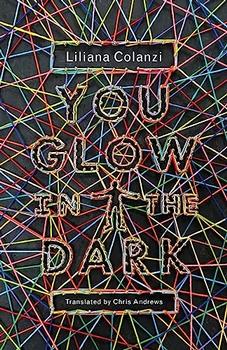Summary | Excerpt | Reviews | Beyond the Book | Readalikes | Genres & Themes | Author Bio

The Greenest Eyes
She spent her tenth birthday in her mother's village. Every vacation they went back to that place in the jungle where there were no cars, just motorbikes going round and round the plaza, and huge insects that kept frying themselves on the streetlamps. Her father bought mara wood there and took it to the city to make varnished furniture. As time went by, there were more timber cutters in the jungle, and fewer mara trees, and more varnished furniture with carved swan's heads in the fancy houses. Ofelia liked the village because she was allowed to play with the neighborhood children until after midnight. Also, most of them rode motorbikes, like a gang of pizza delivery kids. The only cinema showed samurai movies, and there was an ice cream parlor on the plaza where they bought ice cream made from fruits with mysterious and resonant names: motojobobo, cacharana, pitanga, ocoró, asaí ...
On her birthday, her parents took her to dinner at The Dragon Palace, the only Chinese restaurant in the area. There was a red-and-gold folding screen suspended from the ceiling, and the entrance was guarded by two stucco dragons. At the door, her parents respectfully greeted a blond man with puffy bags under his eyes: it was Señor T., who had once been a well-known singer. Now he was an alcoholic and sang in karaoke bars and at farmers' birthday parties. Señor T. greeted Ofelia's mother with an explosive kiss on the cheek that left her stunned and blushing. Then he gave Ofelia a birthday hug, enveloping her in his whiskey breath: "She's a pretty girl," he said. "Pity she didn't get her father's eyes."
Before Ofelia's parents could react, Señor T. had walked off, and a waiter with a droopy false mustache and a red paper hat was leading them to a round table beside a tank in which stupefied catfish swam around and around. Ofelia's spirits had been dampened by the singer's remark. She couldn't cheer up even when they brought out the peach cake. After she'd blown out the candles, the waiter left them a tray of fortune cookies in foil wrappers with pictures of chrysanthemums. In the cookie that her older brother Mariano chose was the message: "Superstition is the poetry of the poor." Her mother got: "Who is born an armadillo digs until his dying day," which soured her mood. Ofelia's fortune cookie, on the other hand, came bearing promises: "Wishes of all kinds fulfilled. Call 666-666." She put the slip of paper in her pocket without showing it to anyone.
As she was falling asleep, thoughts jumped around in her head like monkeys in the treetops. She thought that she would have liked to be born with the green eyes of her father, the son of Italian farmers who had migrated, fleeing from war. But like her five siblings she'd ended up with the fiercely dark eyes of her mother, the ninth child of a hard drinking country teacher and a woman from a dirt-poor family. Ofelia's mother had escaped the fate of her fellow villagers by marrying that handsome, green-eyed foreigner, and it was only because of her husband's business that she returned — she would never have looked back otherwise. When the village children asked Ofelia where she was from, she said without hesitation: Italy. In spite of the fact that she had never set foot in that country, and had inherited her Aunt Amanda's flat nose and just about everyone's dark chocolate eyes.
The following day, in the house they were renting, she approached the mustard-colored telephone, next to the black, leather-bound notebook in which her father kept the business cards of his clients and of the sawmills. Ofelia dialed the number on the slip of paper. Elevator music preceded the elegant diction of a secretary:
"How can I help you?" That warm, modulated voiced convinced her that it was a serious enterprise and not some kind of scam.
"It says in the advertisement that you fulfill wishes of all kinds. I want to have green eyes. Is that possible?"
Excerpted from You Glow in the Dark by Liliana Colzani. Copyright © 2024 by Liliana Colzani. Excerpted by permission of New Directions Publishing. All rights reserved. No part of this excerpt may be reproduced or reprinted without permission in writing from the publisher.
Your guide toexceptional books
BookBrowse seeks out and recommends the best in contemporary fiction and nonfiction—books that not only engage and entertain but also deepen our understanding of ourselves and the world around us.